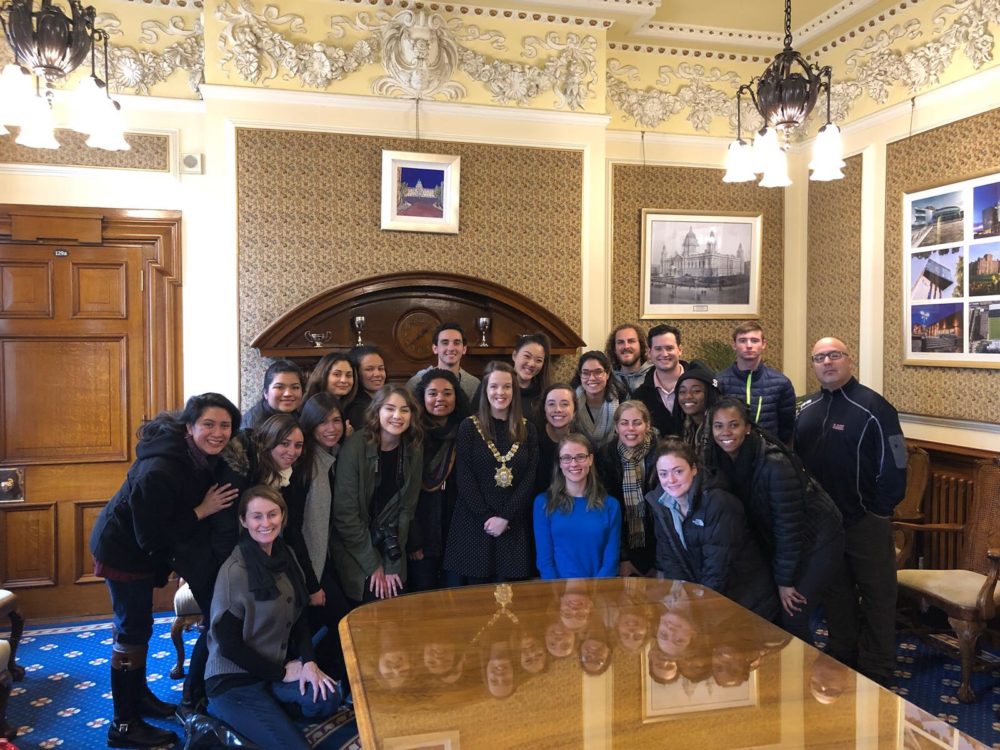
Every spring, the Bellarmine College of Liberal Arts offers semester-long classes that include a week-long international trip over spring break. This year, BCLA offered six Global Immersion classes that travelled to China, Greece, Vietnam, Costa Rica, Cuba, and Northern Ireland; covering topics like education and environmentalism, US immigration, and peace-building in post-conflict societies. This past semester, political science and psychology students came together to look at peace-building in Belfast, Northern Ireland through the lens of both disciplines.
After spending two months learning the history behind the Troubles (the period of violence in Northern Ireland between the Irish Nationalists and British Unionists) in class, students travelled to Northern Ireland over spring break, where they spent the week visiting with community activists, attending peace forums, and interacting with locals to collect research on effective peace-building strategies. They met with the Lord Mayor of Belfast, Nuala McAllister, and were able to ask her questions about the city’s plans for peace-building. They also attended a peace forum, hearing from international and religious leaders about the Troubles and subsequent peace building from their own perspectives.
“The trip was incredibly eye-opening,” said Ginny Laskodi ’19, a political science major. “You always hear people talk about the Troubles as if the people in Northern Ireland have completely healed from the violence. They haven’t. Innocent people were murdered in their neighborhoods because of their religious and political identities. You can’t possibly heal after that just because a peace agreement was signed. There needs to be active work in the community, and it was amazing to see the locals work towards peace in their own unique ways.”
Students met with local artists, tour guides, and students at Queen’s University Belfast to discuss the various ways in which the country is trying to move forward after the Troubles. They spoke with Carole Kane, a local artist who brings communities together to work on art projects after tragedies, graduate students at Queens pursuing research on how the Troubles still affect young children, and former members of the military to discuss their unique perspective on the conflict. Students used their interviews as research for their final papers that focused on a particular area of conflict resolution, comparing Northern Ireland to another post-conflict country.
Each Global Immersion class offers a unique, immersive experience, especially for students who cannot fit an entire semester abroad into their schedule. Global Immersion classes not only enrich students’ learning, but they are also personally transformative, as many students have never travelled internationally prior to taking a Global Immersion class. Studying abroad, whether it be for a semester or a week, speaks to LMU’s belief in the education of the whole person through the broadening of cultural, intellectual, and personal experiences.
Interested in taking a Global Immersion class? See what other Global Immersion classes were offered this semester.



